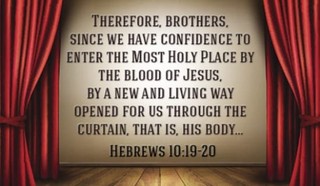
- Recent Translations
- All Translations
Hebrews 10:3
Share
Settings
Hebrews 10:3 Meaning and Commentary
But in those sacrifices
The Arabic version reads, "but in it"; that is, in the law; but the Syriac version reads, and supplies, as we do, (Nwhb axbdb) , "in those sacrifices", which were offered every year on the day of atonement:
there is a remembrance of sins made again every year;
of all the sins that were committed the year past, and even of those that were expiated typically by the daily sacrifice, and others that had been offered; which proves the imperfection and insufficiency of such sacrifices: there was a remembrance of sins by God, before whom the goats were presented, their blood was sprinkled, and the people cleansed, ( Leviticus 16:7 Leviticus 16:14 Leviticus 16:15 Leviticus 16:30 ) and there was a remembrance of them by the people, who, on that day, afflicted their souls for them, ( Leviticus 16:29 Leviticus 16:31 ) and there was a remembrance of them by the high priest, who confessed them over, and put them upon the head of the goat, ( Leviticus 16:21 ) by which it was owned, that these sins were committed; that they deserved death, the curse of the law; that the expiation of them was undertook by another, typified by the goat; that this was not yet done, and therefore there was no remission, but a typical one, by these sacrifices; but that sins remained, and required a more perfect sacrifice, which was yet to be offered up. Legal sacrifices were so far from inducing an oblivion of sins, that they themselves brought them to remembrance, and were so many acknowledgments of them. Though Philo the Jew thinks the contrary, and gives this as a reason why the heart and brain were not offered in sacrifice, because
``it would be foolish, that the sacrifices should cause, not a forgetfulness of sins, but a remembrance of them F17.''
F17 De Victimis, p. 841.
